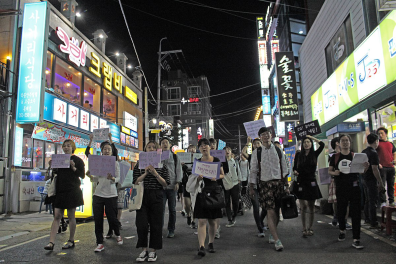"China, Korea, Japan: feminists fight against the family model", December 15

Monday, December 15 at 6:30pm at the Inalco auditorium, 65 rue des Grands Moulins, 75013 Paris and live on YouTube Live.
Registration required to attend the conference in person or remotely.
"Today, what seems to matter most in a woman is her ability to look after her husband and in-laws. Our experiences, our work and our lives don't count," laments a young South Korean feminist to the South China Morning Post in 2019. "I don't see the point in sacrificing a large part of my life to raise another human being", explained a young Chinese feminist activist to TV5 monde at the end of September. "I don't want to depend on anyone but myself", a young Japanese woman told the New York Times.
In recent years, testimonies like these have been multiplying in these three East Asian countries. In these patriarchal, conservative societies, it's the mother's job to look after the children, even if it means giving up her professional life. But buoyed by the post-#Metoo freedom of speech, more and more women - often educated and from the urban middle class - are rejecting this traditional family model, favoring celibacy as a perceived guarantee of "their freedom".
However, it didn't take long for this liberation of women's voices to provoke a reaction and discontent among part of the population, particularly among young men. An opposition that sometimes turns to confrontation on social networks and in the streets.
This conference will attempt to analyze and compare these feminist movements in China, Japan and South Korea. What role did the #Metoo movement play in the emergence of these movements? What is the place of women in these East Asian societies? How are governments reacting? How can this wave of masculinist opposition be explained?
With :
- Camille-Victoire Laruelle, doctoral student attached to the University of Rennes and specialist in the feminist question in China
- Isabelle Konuma, professor of Japanese law at Inalco and specialist in family law and reproductive policies in Japan
- Marion Gilbert, PhD in sociology and specialist in South Korea
Moderator:
- Cyrielle Cabot, journalist with France 24 and Asialyst
Co-organizers: Inalco and Asialyst.com, the news and analysis website for Asia
Contact: contact@asialyst.com